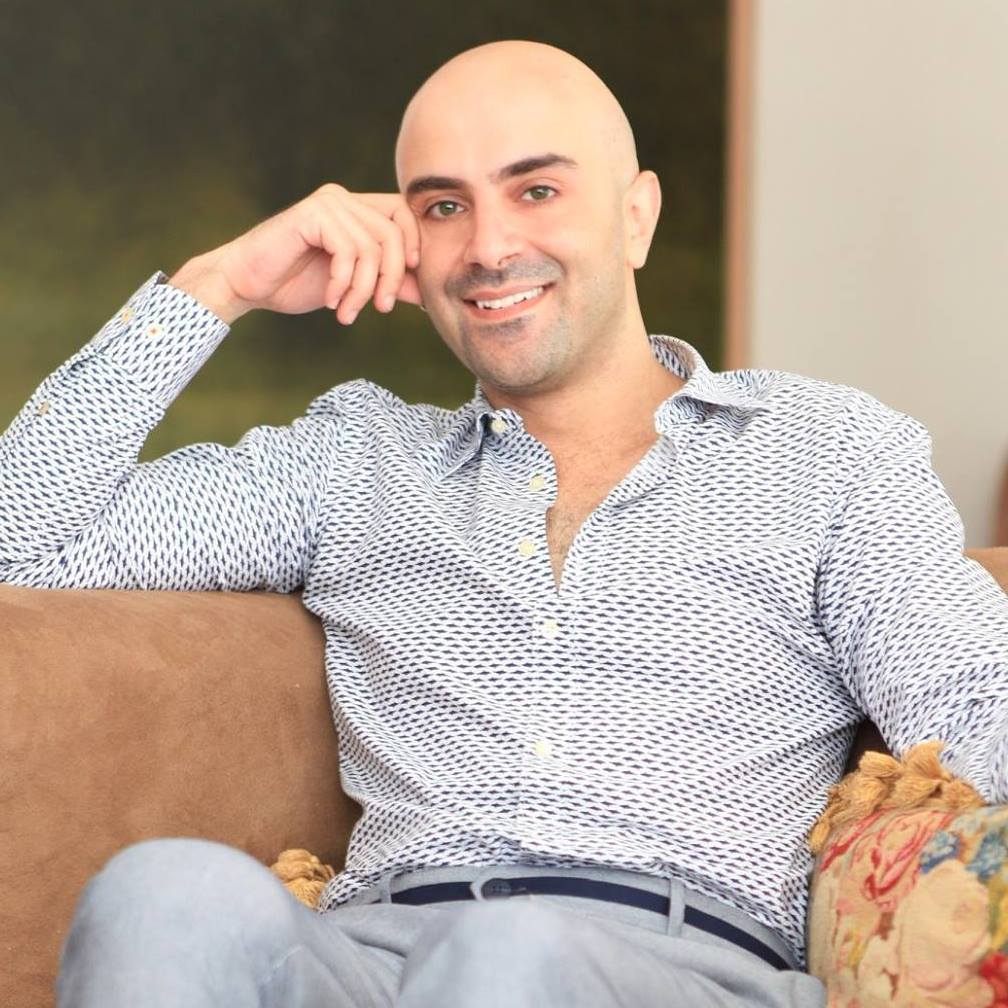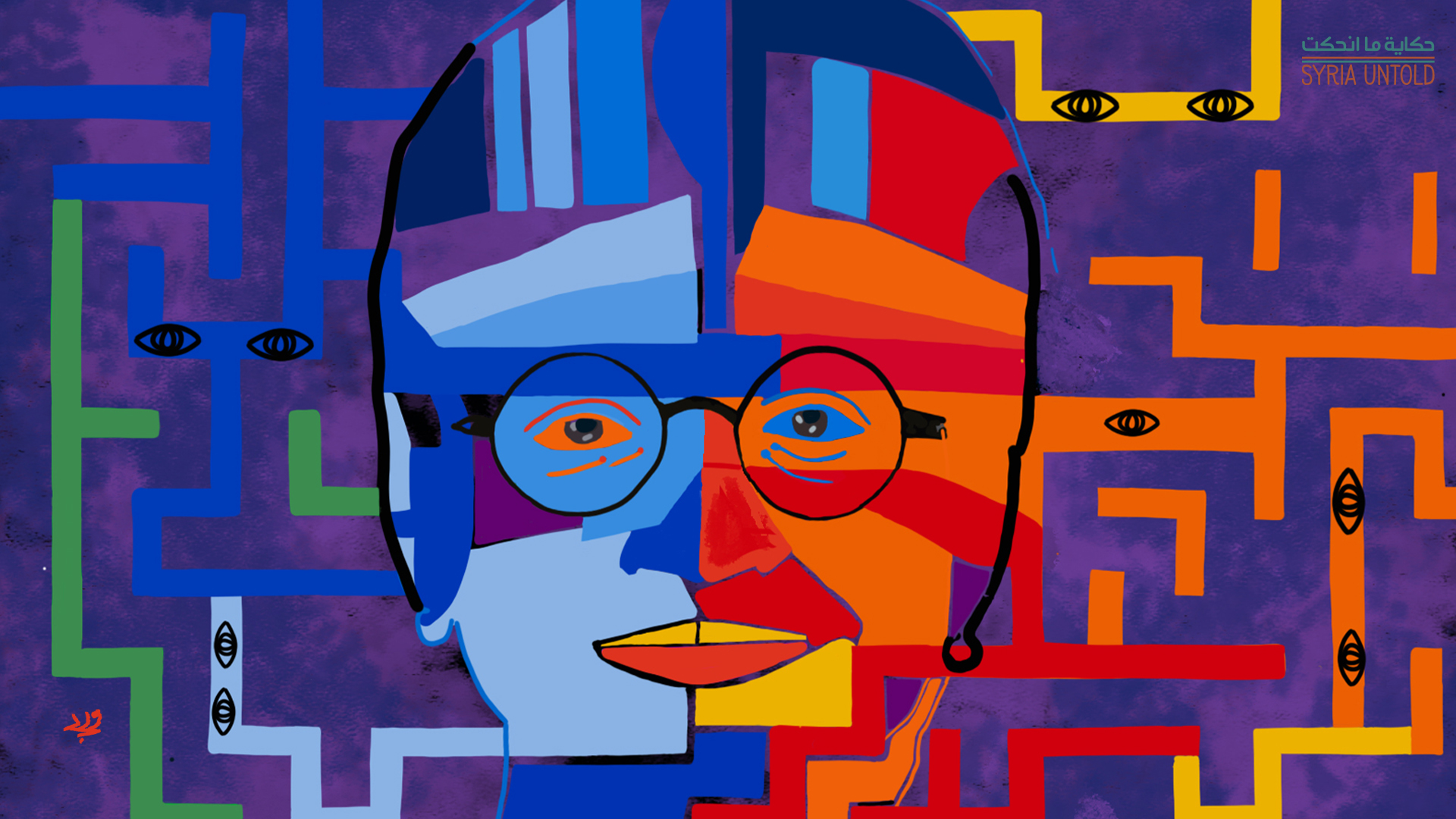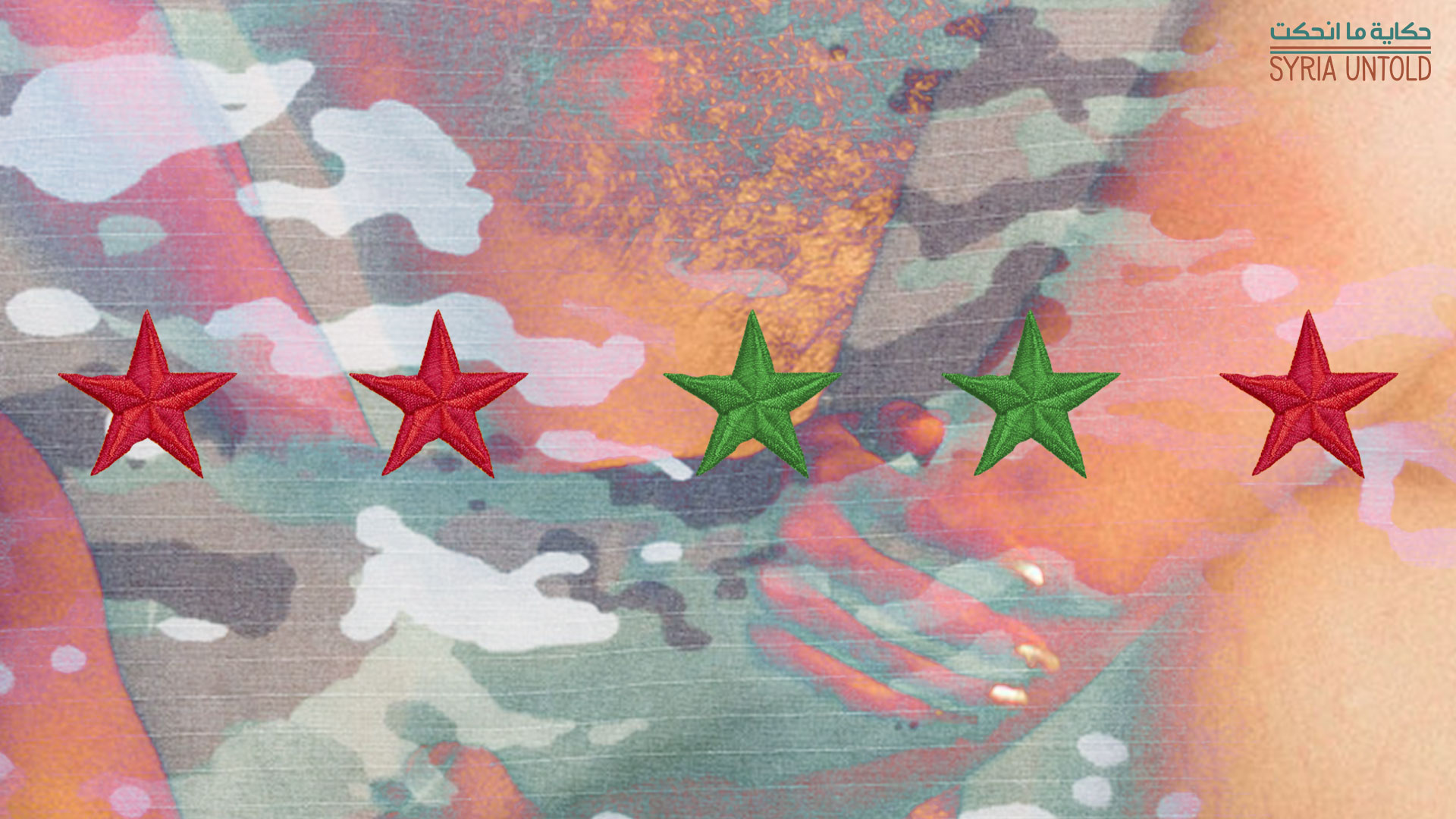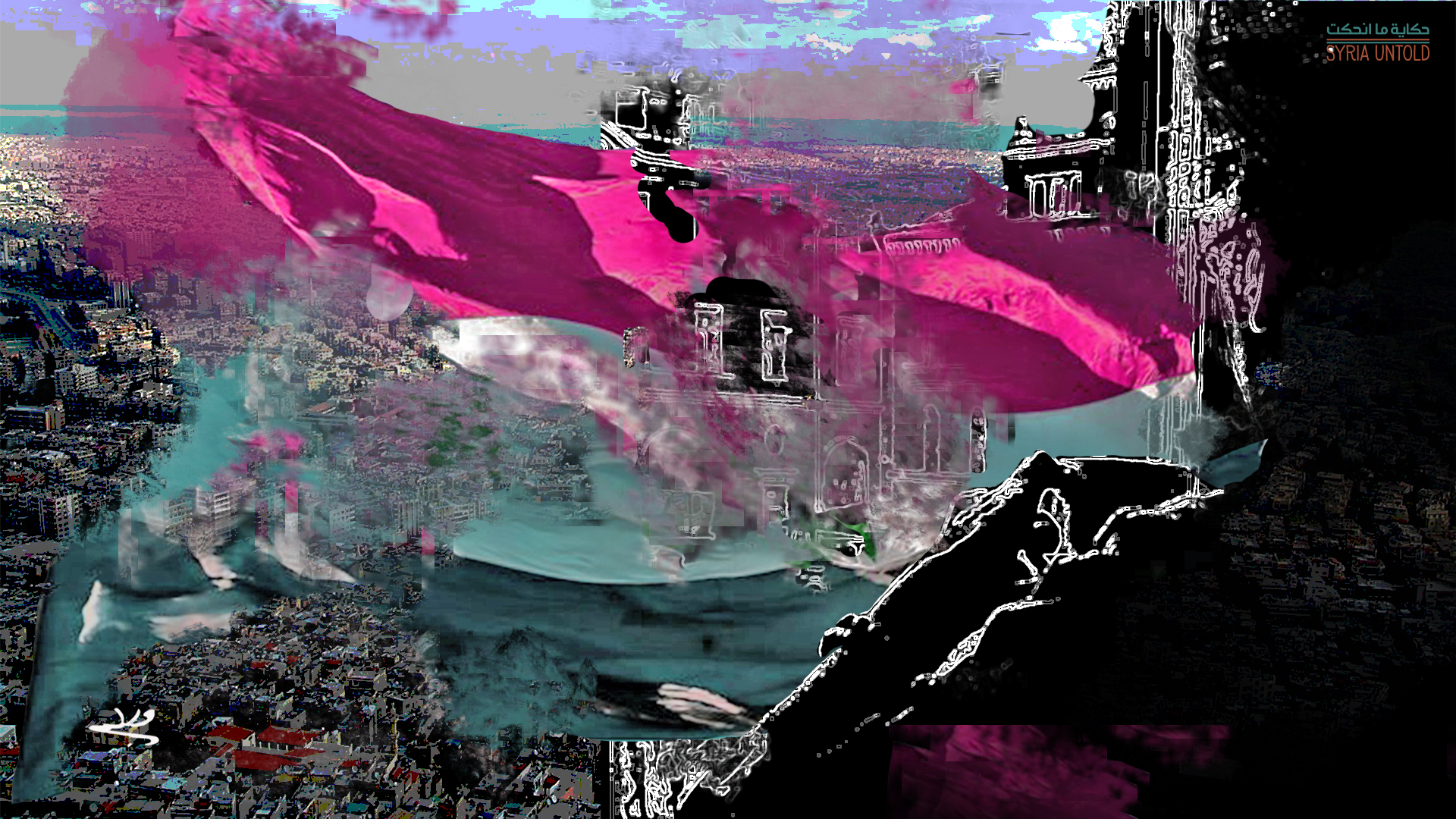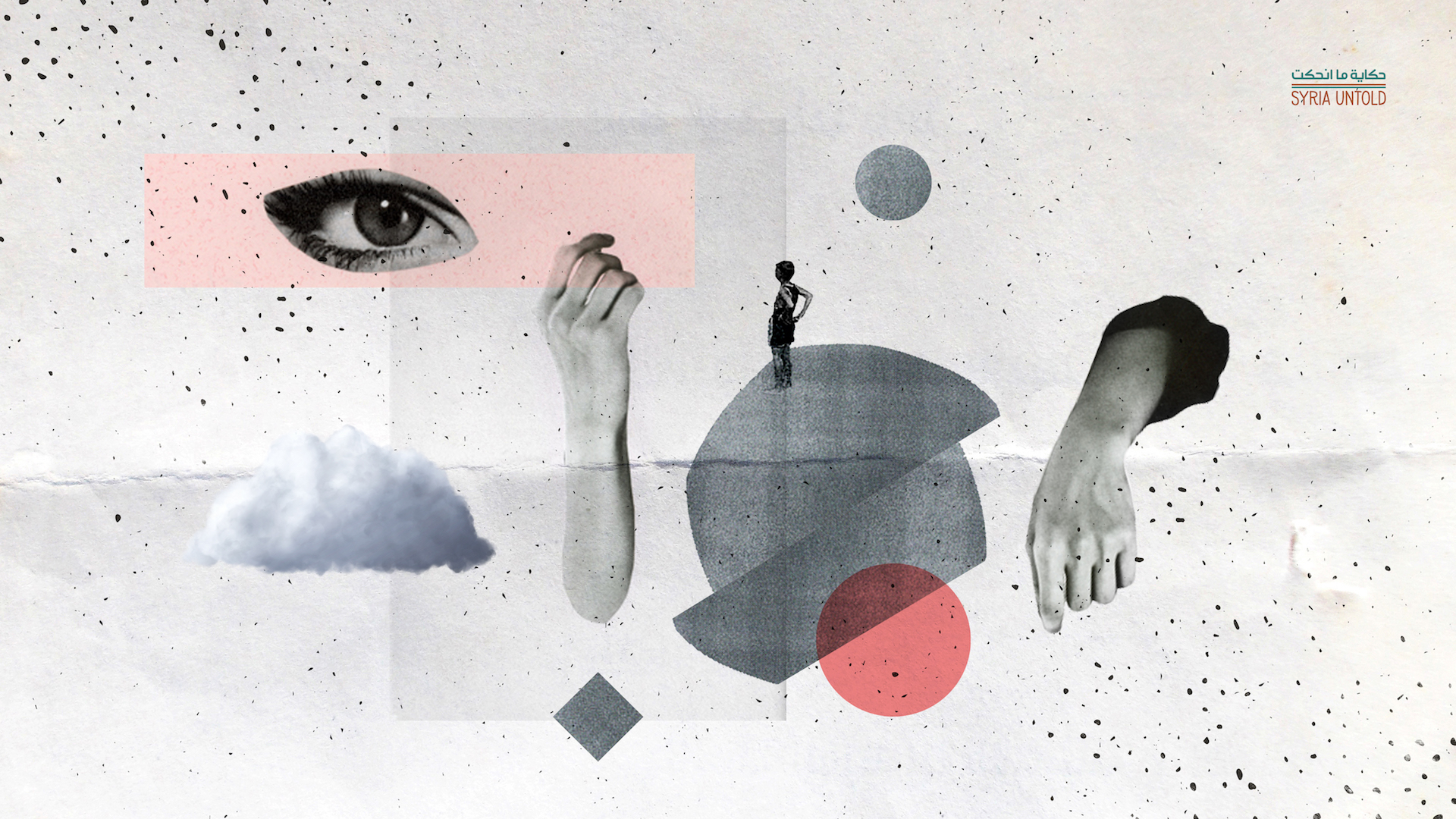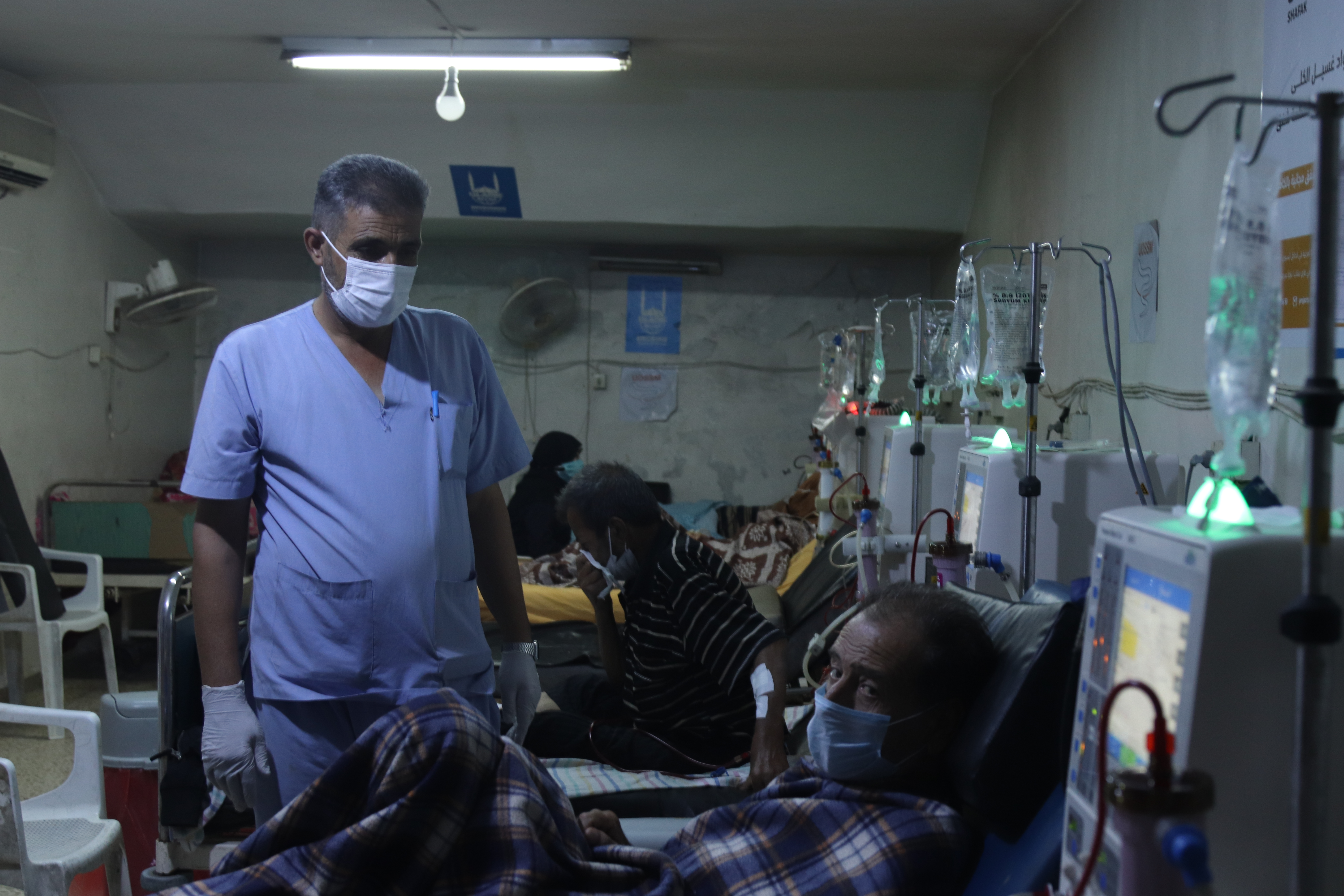This piece is part four of our series on LGBTIQ Syria, guest edited by Fadi Saleh and published with funding from Hannchen-Mehrzweck-Stiftung.
History teaches us that most revolutions have only been about seizing and monopolizing power while leaving cultural and social structures unchanged. Nonetheless, some people still believe that a revolution is the only possible way to initiate change, to find space for expressing new ideas and for society to manifest its need and express its readiness for new values, systems and structures.
The latter is what happened in March 2011. When the uprisings started, some participants raised their voices, saying that LGBTIQ rights must be also part of the revolution’s demands. Many LGBTIQ people were themselves part of the uprisings, so it was only natural for them to make such demands. A large number of them harbored hopes that their personal freedoms and civil rights would be protected if the revolution succeeded, an ambition that was branded by some as “emotional,” and detached from the realities of a society that remained governed by patriarchal values that contradicted equality, freedom and modernity.
Sarah Hegazi in Syria
20 October 2020
Almost 10 years later, it seems that the conflict will only come to an end after achieving some kind of a political transfer of power and a complete transformation of the government and its ruling system. While it is true that the regime is gnawing on itself, this is happening at a violently slow pace that is draining the entire country.
However, even if the regime falls and such a change occurs, the fight will continue against the regime’s legacy, and against the systems that have violently permeated and shaped our society for half a century. The fight against our oppressor, regardless of his name or ideology, will not stop until we adopt a humanist mentality, liberate sexuality from repressive logics, and understand it as a concept that is deeply tied to individual freedom and human dignity. This raises important questions about the role, nature and capacities of Syrian LGBTIQ people and requires an overview of the cultural, social and legal contexts they inhabit.
The walls of silence
Prior to the uprisings, the Syrian LGBTIQ community did not have a clear political identity or an organized structure. This is hardly surprising in a heteronormative society, where all aspects of life are strongly controlled and shaped by the regime, and different forms of violence are exercised. LGBTIQ Syrians faced varying degrees of violence and discrimination depending on their class, which city or region they came from, their appearance and to what extent they conformed to the dominant moral and gender norms or passed society’s masculinity and femininity tests. What is more, with the lack of access to knowledge about gender, sexuality and identity and the need to assimilate into the dominant normative binary structures, such violent dynamics seeped into LGBTIQ communities. We can see this in the exclusion of bisexual or transgender people, and the perpetuation of harmful stereotypes by gays and lesbians themselves. This further isolated Syria’s LGBTIQ communities and became another—this time, self-imposed—obstacle to the project of building an identity- or rights-based movement.
This lack of a collective, political structure also extended to virtual spaces. LGBTIQ Syrians were unable to start an online movement or even launch advocacy and support campaigns. While they might offer space for expression, social media platforms are eventually only tools whose content and communication mechanisms are largely a product of hegemonic social structures. For LGBTIQ Syrians, this meant that the traditional powers that perpetuate exclusionary rhetoric and harmful representations remained powerful. Members of the community were forced to self-censor, keep silent and withdraw out of fear of being exposed, which would have led to repercussions from both society and the security apparatus.
Not the regime’s responsibility alone
The Syrian regime is not solely responsible for all the consequences of the legally sanctioned social isolation of and violence against Syrian LGBTIQ people. There are other factors that must be taken into consideration. First, there is a collective Arab consciousness that continues to repress sexuality and see it as a taboo. This consciousness normalizes and perpetuates a dominant binary system of sexuality that divides people into an “active” person—always a man—who penetrates (and is never penetrated), and a “passive” person whose identity is considered socially inferior [i].
This binary logic permeates everyday language, reproducing and enforcing stereotypes whose sole purpose is the “demeaning” of LGBTIQ people. This can best be best in the archetype of the “passive” gay man, who is continuously associated with political or social defeat, and is used as a means of insulting others.
Similarly, language used in the media or in medicine, for example, continues to represent LGBTIQ issues by employing a vocabulary of deviance, illness or mental disturbance to describe homosexuality, which has been removed from the list of mental illnesses for decades now.
Second, although the Syrian constitution asserts full equality among citizens without discrimination, and ensures the protection of privacy, which includes the privacy of sexual life, Article 520 of the Syrian Penal Code criminalizes homosexual sex acts [ii]. While the Penal Code is often not enforced, its existence still enables and justifies violence, blackmail and oppressive societal attitudes toward LGBTIQ people.
This binary logic permeates everyday language, reproducing and enforcing stereotypes whose sole purpose is the “demeaning” of LGBTIQ people. This can best be best in the archetype of the “passive” gay man, who is continuously associated with political or social defeat, and is used as a means of insulting others.
Article 517 of the Penal Code, on the other hand, targets and criminalizes any public expression of non-conformity and difference as “corruption of public morality.” The law does not grant any protections against discrimination based on sexual orientation or gender identity. Moreover, it does not feature any measures that allow transgender people to legally change their gender markers on documents. Instead, the law only acknowledges two genders or sexes: male and female. This exposes transgender and gender non-conforming people to constant danger of verbal and physical violence whenever they present their IDs.
In addition, there is no law that regulates gender affirmation surgeries. Some courts allow surgeries only in cases of intersex patients, where a doctor’s diagnosis is available. However, cases that are based on one’s self-identification as a transgender person remain illegal.
Voices
With the revolution came the binary division of pro-regime and pro-opposition. This further exacerbated the isolation of LGBTIQ Syrians and dismantled the few spaces, ties and support networks that they created outside heteronormative kinship and social structures.
In the shadow of that flag
13 October 2020
Strategies for rebellion: A queer reading of the Syrian revolution
06 October 2020
As the armed conflicts escalated, many people from Syrian LGBTIQ communities—much like everyone else—also became casualties and prisoners, or were displaced into neighboring countries, struggling to make ends meet day to day while fighting the racism and rejection of their host societies.
During the first years of the uprising, Turkey became a favored destination and was seen as a “less” violent society due to its relative tolerance of LGBTIQ people, the relatively fair treatment of Syrians by the Turkish government, and the openness of Turkish LGBTIQ communities toward newcomers. While these factors encouraged many Syrian LGBTIQs to gather and organize certain activities, they could not truly start a movement, primarily because Turkish treatment of Syrians started to shift in later years. Many of the “luckier” LGBTIQ Syrians were also leaving Turkey and settling in Europe. Needless to say, even those “luckier” ones were still not fully safe from stigma and family shame, or from facing discrimination as refugees as well.
Of the many events over the last 10 years, and in addition to the news of horrific crimes committed by extremist factions against gay men, the piece of news about Syrian LGBTIQ people that stood out the most on a global scale was the formation of an LGBT unit to fight alongside US-backed forces in Raqqa against the Islamic State, in the summer of 2017. It mostly looked like another American propaganda tool in the US war on terror, reproducing the binary of the progressive West vs. the regressive Middle East. It is a generalization that does not stop at IS, but extends to include an entire culture within a Western narrative that legitimizes homophobia by claiming to protect homosexuals. Such problematic interventions are ineffective and only further the gap between LGBTIQ people and the societies in which they live, on the one hand, and normalize categorizing them as “agents” of the West, on the other [iii].
Breaking the silence
Despite the difficulties of recent years and the challenges of displacement and asylum, there are noticeable changes in the public discourses surrounding sexual orientation and gender identity—changes that were not imaginable before 2011.
With the revolution came the binary division of pro-regime and pro-opposition. This further exacerbated the isolation of LGBTIQ Syrians and dismantled the few spaces, ties and support networks that they created outside heteronormative kinship and social structures.
Still, discourses must morph into action. When approaching issues of sexual and gender diversity from a social perspective, and analyzing the mechanisms that produce oppressive behavior, it becomes clear that the fight is against the patriarchy and its historical legacy. This fight requires deconstructing and restructuring power dynamics in a way that does not allow for social oppression based on imposed gender roles. While such change is possible, it can only happen incrementally, through building and maintaining a movement that is critical and aware of the following observations.
My childhood friend, now a ghost
18 September 2020
For young Idlib doctors who treated war wounds, COVID an invisible new threat
02 October 2020
First, no political party or faction in Syria can be relied upon to adopt or advocate for LGBTIQ rights as a cause. Rights-based issues that challenge societal norms are not attractive to parties who are primarily concerned about maintaining their support base. For example, in Egypt, only one out of around 100 registered parties—the Revolutionary Socialists—condemned the systematic crackdown on LGBTIQ people after police arrested people for waving a rainbow flag at a Cairo pop concert in 2017.
In Syria, no political party ever presented a balanced discourse regarding personal freedoms, and opposition discourses are plagued by an exclusionary rhetoric that turns them into “but” parties, a term I lift from psychological and political scholar Qadri Hafni. The term describes groups that demand freedom by always following it with the word “but,” thus preemptively enforcing restrictions and conditions in case there is a conflict of interest: “freedom for moral ideas, and no freedom for destructive, imported ideas” [iv].
Second, framing LGBTIQ issues in political and economic terms, instead of as indivisible rights issues, might not always be the best strategy. Instead, this framing sometimes exacerbates hate speech and discriminatory rhetoric when used during periods of economic instability or before elections, such as in Turkey, Hungary and Poland. Moreover, making LGBTIQ rights an issue of the state might detach it from its context and the lived realities of people themselves.
In Cuba, for example, an amendment to the constitution was proposed in 2018 that would legalize same-sex marriage, all in a bid to open up Cuba to foreign markets and investments. This happened even as state institutions failed to address their own homophobia and, a problem that became clear in the series of arrests and violence against the LGBTIQ community during the Havana gay pride march in 2019.
This dynamic—a problematic reliance on the state—could also be seen in Iran, where a fatwa issued by former Supreme Leader Khomeni in the 1980s allowed for the legalization of gender affirmation surgeries, a welcome change for transgender people. Still, the measure became a curse for many gay men who were then caught between the choice of either being persecuted or undergoing “corrective” surgeries that they did not need.
Our fight for rights must remain intersectional, and should focus on the following two paths: the legal, as we need laws that protect civil and political rights of LGBTIQ people as equal citizens first and foremost. This will establish a common ground between proponents and opponents of LGBTIQ rights, erasing the unnecessary debates surrounding them. Second, it is compulsory that we enshrine constitutional justice mechanisms in any future Syrian constitution with the aim of decriminalizing LGBT people ending their legal oppression.
As for the second path, it is primarily social. Organizing online is, for now, the best option to gather LGBTIQ Syrians scattered around the world, benefit from their expertise and create more spaces for discussion and debate. In addition, we need more cultural and artistic efforts to deconstruct heteronormative structures, mainstream sexual and gender diversity issues. We must create a local sexual discourse, as well as knowledge production frameworks that draw on our social contexts and are capable of containing the sensitivity of such issues without compromising the essence of rights and the inevitability of change.
The fight for personal freedoms has already begun. While it might not have reached its goal yet, it will continue to prioritize human rights over dominant cultural and social mores and traditions. It will continue to prioritize human dignity, freedom, justice and full equality between people without any form of discrimination—especially against LGBTIQ people, whose rights have become a touchstone for measuring the progress of human rights in our contemporary world.


